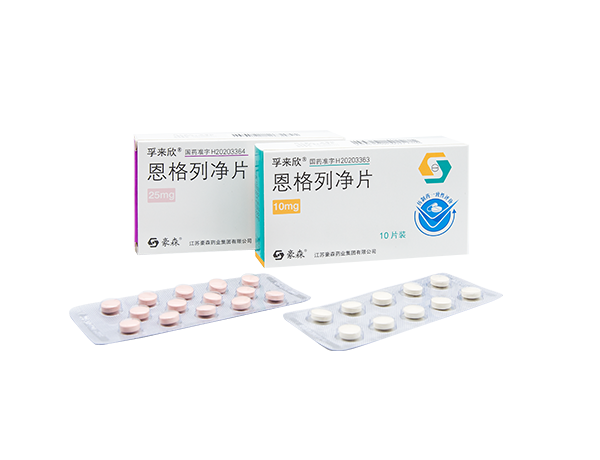English Name: Empagliflozin Tablets
Chinese Pinyin: Engeliejing Pian
The active ingredient of this product is empagliflozin.
Chemical Name: (1S)-1, 5-anhydrous-1-C-[4-chloro-3-[[4-[[(3S)-tetrahydro-3-furyl]oxy]phenyl]methyl]phenyl]-D-glucitol.

| 【Name】 | Common Name: Empagliflozin Tablets English Name: Empagliflozin Tablets Chinese Pinyin: Engeliejing Pian |
|---|---|
| 【Ingredients】 | Active Ingredient: empagliflozin Chemical Name: (1S)-1, 5-anhydrous-1-C-[4-chloro-3-[[4-[[(3S)-tetrahydro-3-furyl]oxy]phenyl]methyl]phenyl]-D-glucitol. Structural Formula:
Molecular Formula: C23H27ClO7 Molecular Weight: 450.9 |
| 【Description】 | This product is a film-coated tablet, appearing white or off-white after removing the coating. |
| 【Indication】 | This product is indicated for the treatment of type 2 diabetes. |
| 【Strength】 | (1) 10mg; (2) 25mg. |
| 【Dosage and Administration】 | Recommended Dose The recommended dose of this product is 10mg in the morning, once a day, on an empty stomach or after eating. In patients who tolerate this product, the dose can be increased to 25mg. In patients with hypovolemia, correction of hypovolemia is recommended prior to initiation of this product (see 【Precautions】). Patients with Renal Damage Assessment of renal function is recommended prior to initiation of this product and should be done periodically thereafter. This product should not be used in patients with eGFR below 45mL/min/1.73m2. Dose adjustment is not required for patients with eGFR greater than or equal to 45mL/min/1.73m2. This product should be discontinued if eGFR is consistently below 45mL/min/1.73m2 (see 【Precautions】). Patients with Liver Damage Dose adjustment is not required for patients with liver damage. Patients with severe liver damage have increased exposure to empagliflozin. Experience with treatment in patients with severe liver damage is limited, so it is not recommended for this population.
Note: Please refer to the Product Manual for details. |